Signs You Need Better Air Quality At Home

Air pollution makes breathing uncomfortable. People dread going outside when there’s heavy smog around their city. Some might stay indoors until it passes, although this strategy doesn’t guarantee safety. Indoor air quality can be just as bad, if not worse. The symptoms may already be affecting your family’s health. This article discusses the signs of air quality problems at home.
Signs You Need Better Air Quality At Home
Contents
Open your eyes to notice the signs. These tend to recur and worsen over time unless you step in. Take charge if you see the following in your household:
1. Sneezing
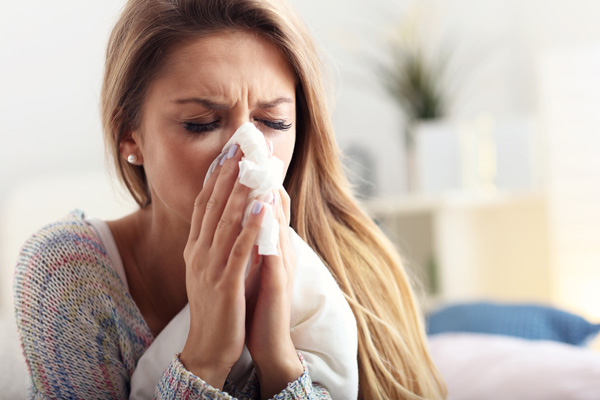
Pollutants will irritate your body. It will try to expel the particles immediately by sneezing them out. You don’t have to worry about occasional episodes, but you should take it seriously if the sneezing doesn’t stop. The indoor environment is triggering this response.
2. Cough
High particle concentration can produce worse results. When you breathe them in, some get lodged in the lungs and cause problems. Coughing is the body’s attempt to get rid of these foreign substances. It won’t stop unless you clean up the indoor air.
3. Illness
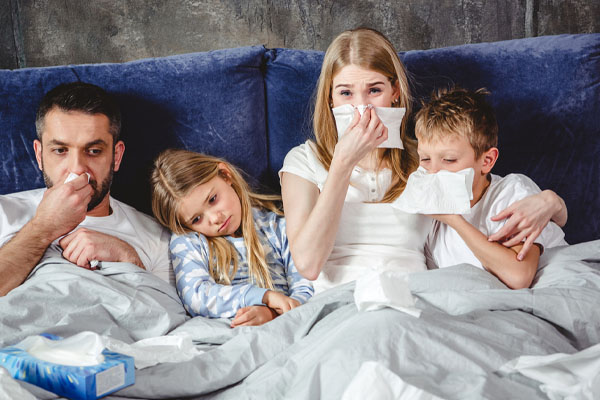
Dry air allows airborne pathogens to move around with ease. Illness spreads faster around the home and within communities. This phenomenon is partly to blame for frequent colds, coughs, and flu symptoms during the cold months. If you want to improve indoor air quality, control the humidity.
4. Fatigue
Do you feel tired when you’re inside the house? Does going outside help you shake it off? Perhaps your home has toxic fumes that are affecting your cognitive functions. Gas leaks and improper ventilation may be causing it. Ask an HVAC technician to investigate.
5. Headache

You may experience intense headaches due to chemical exposure. Household products such as cleaning agents may emit harmful fumes. Pesticides, pet waste, and standing garbage also have strong odors that can make people nauseous. Lastly, excessive indoor pollution may lead to congestion and sinus headaches.
6. Allergies
Airborne allergies tend to be seasonal issues caused by the outdoor environment. If allergy symptoms emerge outside the typical periods, you may want to check the indoor air quality. Frequent cleaning may reduce the severity of the symptoms. Taking medication such as antihistamines can also help.
7. Dust
You don’t have to wait for the people around you to get sick before making a move. Inspect the interior surfaces. Do you notice excessive dust build-up? Did your home undergo renovation or other changes recently? There are more of those dust particles floating in the air. It’s only a matter of time before they cause respiratory issues.
The Importance Of Good Indoor Air Quality
Our environment affects our health and well-being. We spend most of our time indoors – sleeping, eating, working, studying, and socializing. Polluted interiors are dangerous because of prolonged exposure to harmful substances. Working on indoor air quality allows us to stay healthy and comfortable as we go about our days. High IAQ leads to a better quality of life, lower risk of chronic ailments, and fewer incidents of respiratory problems. We can stay on top of the situation by installing air quality monitors and taking swift action whenever necessary.
How To Improve Indoor Air Quality
Act fast if you see the signs above. Even small steps can have significant effects. Below are among the best things you can do to get a higher IAQ:
1. Change Your HVAC Filter Frequently
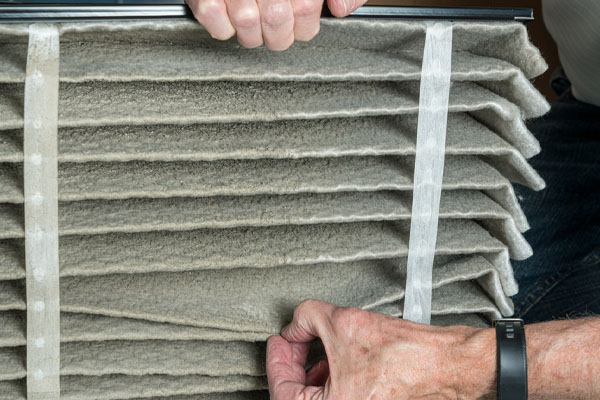
HVAC systems can block pollutants through air filters. However, they become ineffective over time as their surfaces clog with dirt. Change the filters frequently to promote good airflow while maintaining high indoor air quality. This habit can also extend equipment lifespan, increase energy efficiency, and improve system performance. Be sure to purchase filters with high MERV ratings for better air quality.
2. Install a Whole House Air Filter
Pollutants come in different sizes. HVAC filters may not catch the smallest particles. If you want better protection against airborne irritants, install a whole-house air filter. Consult an HVAC contractor about getting a suitable system for your home.
3. Reduce the Sources of Pollutants
Figure out why your home has these air contaminants. Eliminate the sources as you find them. For example, you can ask people to stop smoking indoors and switch to non-toxic cleaning products. You may also choose solid wood furniture over composite wood, as the latter tends to release formaldehyde in the air.
4. Control the Allergen Levels
If you are sensitive to allergens, minimize their presence in your home. You don’t have to say goodbye to your pets. Just brush and bathe them regularly. Use the vacuum cleaner to suck all the pet dander and dust around the house. Wash the bedding in hot water to kill dust mites, and use soap while removing mold from tiles.
5. Use Indoor Plants for Fresh Air
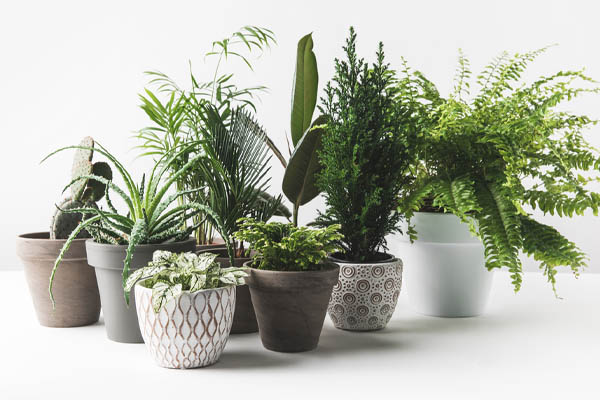
Humans breathe in oxygen and exhale carbon dioxide, whereas plants do the opposite. They use carbon dioxide for internal processes and release oxygen into the environment. Therefore, indoor plants can make your home more pleasant with fresh air and relaxing visuals. The best options are the common ivy, the peace lily, and the dracaena.
6. Reduce Dampness Indoors
Damp surfaces promote mold growth, VOC release, property damage, and respiratory ailments. Repair cracked pipes and leaky roofs to minimize dampness. Use a dehumidifier, an open window, or an exhaust fan to improve ventilation in bathrooms and kitchens.
7. Curb Heating System Risks
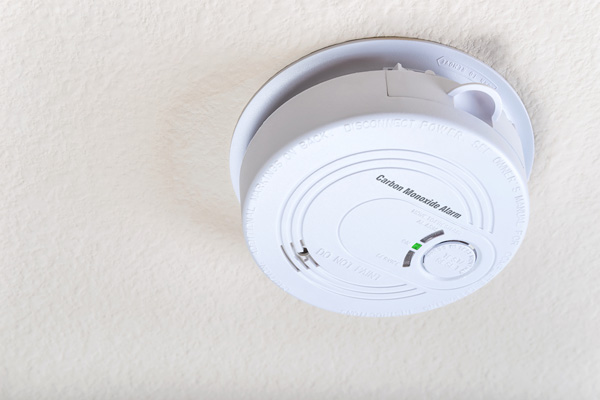
Does your home have a fireplace or a wood-burning stove? These can release carcinogens into the air. Gas-powered heating systems, such as furnace, are less harmful, but you must watch out for potential carbon monoxide leaks by installing CO detectors. Be sure to schedule heating system maintenance to ensure for cleaner air.
Conclusion
Don’t let your loved ones suffer due to contaminated air. If you see persistent signs and symptoms, make the necessary changes for relief. Try the basic strategies and see what happens. Get the help of an HVAC contractor to implement the advanced solutions if required. It’s an excellent investment. When you elevate indoor air quality, you provide better health and comfort for your family.
Call McAllister Energy For Superior HVAC Solutions

McAllister Energy offers high-quality HVAC services in Camden County, New Jersey. We hire only the best professionally certified technicians who conduct superior heating and cooling services. Some of our HVAC services include indoor air quality solutions, HVAC maintenance, heating and cooling installations, repairs, ductless systems, energy audits, and much more. All our techs provide accurate HVAC services on time, every time.
Our company guarantees affordable heating and cooling service rates. Our maintenance services can increase your home’s comfort, energy efficiency, and cost-effectiveness. We can also provide you with a highly energy-efficient HVAC replacement system that fits your budget. Your satisfaction is important to us, so all our work comes with a guarantee. Book a service appointment with McAllister Energy today. We provide free, in-home estimates.
You can click here to contact us now or call us at (856) 665-4545 to find out more! Click the link to view our service area.